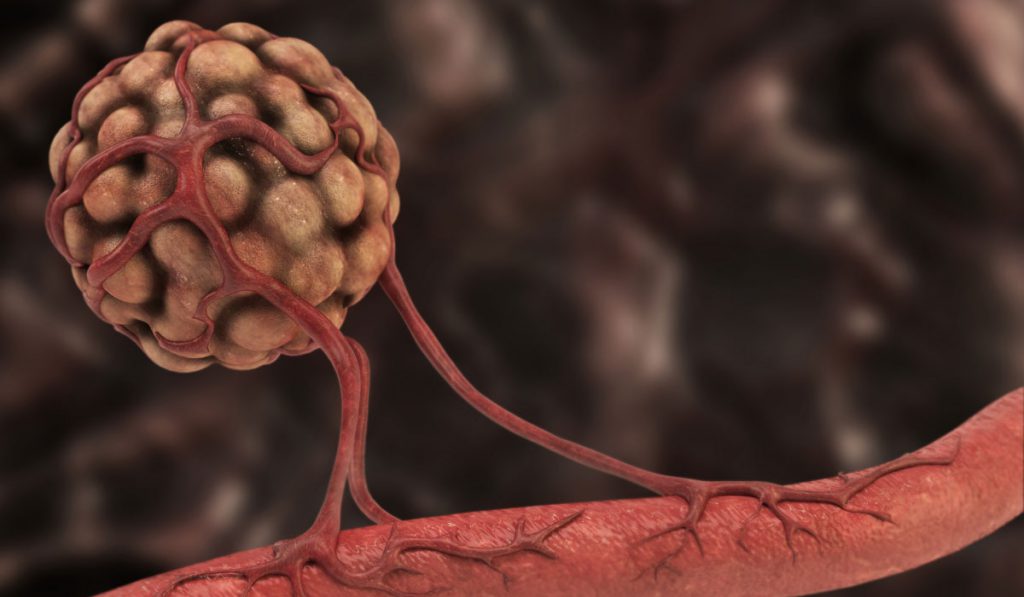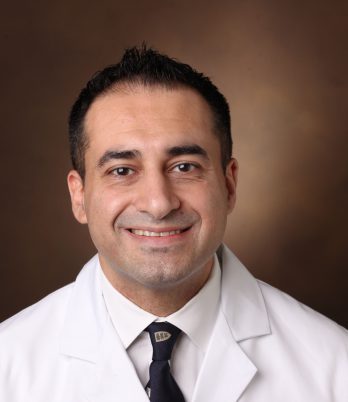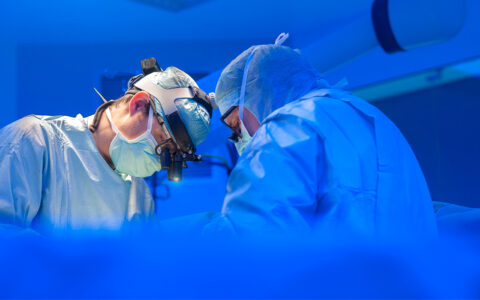For decades, oncologists and others have recognized that specific cancer therapies, including traditional chemotherapies, can have a detrimental impact on cardiac function, leading to issues like cardiomyopathy in which the heart muscle doesn’t squeeze effectively.
Recognition of the important overlap between oncology and cardiovascular medicine has spurred development of the field of cardio-oncology. But there is a growing awareness that there also is an important link between cancer and vascular health.
The American Heart Association recently issued a scientific statement calling for the integration of cardio-oncology and vascular medicine to provide cancer patients and survivors with effective cardiovascular care. The AHA statement is based in part on contributions from Vanderbilt University Medical Center physicians Joshua Beckman, M.D., Javid Moslehi, M.D., and David Chism, M.D.
American Heart Association Spotlight
Beckman, who is director of vascular medicine at Vanderbilt and served as chair of the AHA Council on Peripheral Vascular Disease, recommended that the organization issue the new scientific statement, which appeared in Circulation.
Said Beckman, “In the beginning, there was a lot more emphasis put on heart-related outcomes, particularly heart failure, rhythm disturbances and sometimes electrical abnormalities. But what hasn’t had as much attention until recently is the second half of that word cardiovascular: vascular.”
According to the Vanderbilt researchers, cancer itself can have an impact on the vasculature.
“Cancer and cancer treatment interactions encompass all vascular beds including veins and arteries,” said Moslehi, director of cardio-oncology at Vanderbilt and vice chair of the AHA committee that issued the statement. “We realize now if you have cancer you have a high risk of blood clots, and one of the major risk factors for mortality among cancer patients is the development of pulmonary embolisms or deep vein thrombosis.”
There is also growing recognition that risk factors for cardiovascular disease increase cancer risk. For example, genetic mutations in the blood known as coronary hematopoiesis of indeterminate pathology (CHIP) may lead to blood cancers like leukemias or lymphomas, but they also increase risk of atherosclerotic disease.
Emerging Cancer Therapies and Vascular Complications
Metabolic and physiologic cross-talk between cancer and cardiovascular disease is evident in myocardial complications caused by treatment with traditional cancer therapies like anthracyclines or trastuzumab. Many of the novel cancer therapies now in use are also leading to vascular complications.
“Some of the newer cancer drugs have an effect on vascular metabolism and cause cholesterol changes, metabolic changes and blood pressure issues,” Moslehi said. “These changes affect the vessels in the heart, causing a heart attack, or in the brain, causing a stroke, or in the legs, leading to peripheral artery disease.”
Immunotherapies, including immune checkpoint inhibitors (ICIs), can cause adverse immune-related events including serious, disabling or fatal inflammatory cardiovascular complications. Moslehi recently reported in Lancet Oncology that ICI treatment is associated with higher rates of myocarditis, pericardial diseases and vasculitis, including temporal arteritis.
New Research Directions
“This document will be a beacon for research funders and physicians to consider training.”
The statement from the AHA lists the vascular toxicities of traditional and novel cancer therapies by treatment category. It also provides advice on how to structure a cardio-oncology service and defines new research questions in this space. “I think this document will be a beacon for research funders and physicians to consider training in this area,” Beckman said.
Vanderbilt researchers have begun to investigate questions raised in the statement. Moslehi, Beckman and other colleagues recently received a National Institutes of Health grant to study the vascular and hypertensive effects of angiogenesis inhibitors which block or slow the growth of new blood vessels that feed tumor growth.






